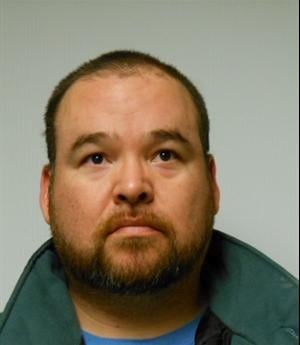The sister of a victim of a brutal murder says Prince George residents should be "very fearful" after learning the culprit has been released into the area on day parole.
Christopher Maurice Alexander, 40, is serving a life sentence for the 1998 deadly stabbing of Linda LeFranc. The two were neighbours in a townhouse complex in Terrace where, according to a parole board panel decision, after a night of drinking a then-17-year-old Alexander put on a balaclava, armed himself with a knife and broke into LeFranc's home.
"You wanted to steal from her, knew where the house key was kept, and had burgled her home previously," the panel said in the decision. "The victim woke while you were in her home. You stabbed her approximately 83 times, killing her. The victim's daughter found her mother dead the next day and ran for help."
In 2002, Alexander was found guilty of second-degree murder and sentenced to life in prison without elibility for parole for seven years.
LeFranc's sister, Anita Johnstone-LeFranc, has fought to keep Alexander behind bars but without success. In 2014, Alexander was granted day parole despite the protests of LeFranc’s family, and having been “assessed at a moderate risk to reoffend generally and violently,” according to parole board documents.
Two years later, Alexander was arrested and charged with two counts of sexual assault, according to parole board documents. His release was suspended and later revoked in relation to claims he had non-consensual sex with his girlfriend while she was sleeping. The charges were ultimately stayed because the court had been unable to locate the victim, according to parole documents.
Up to that arrest, Alexander had been attending the Kwìkwèxwelhp Healing Village, a minimum-security, Indigenous-focused facility. He was sent back to Mountain Institution, a medium-security prison in Agassiz.
He was denied day parole in April 2019 but was found at the hearing to be working with elders, participating in ceremonies and “walking the Red Path,” as the parole decision put it. And while his psychological risk assessment still showed a moderate to high risk of violent recidivism, the psychologist concluded that risk was manageable.
In August 2019, the board authorized escorted temporary absences for community service and two years later, on August 26, he was granted day parole.
Other than to say he is to go to a work camp in north-central B.C., specifics were not provided in the decision. But Johnstone-LeFranc said he will reside at 'Aghelh Nebun, a community residential facilty 85 kilometres east of Prince George.
But Johnstone-LeFranc maintains that within months, Alexander will be able to "frequent, work and possibly reside" in Prince George.
According to the parole board decision, Alexander poses a moderate risk of reoffending and shows a "superficial" sense of responsibility but also noted he has completed programming and that his commitment and ability to use the skills he has been taught has been rated as moderate.
Given Alexander's past behaviour while out on day parole and a pattern of deception and omission, as noted by the parole board panel, Johnstone-LeFranc doubts her sister's murderer has changed his ways and says Prince George residents should be wary if they come across Alexander.
Johnstone-LeFranc provided a fairly recent photo of Alexander and described him as average height and heavy set.
"This is not about being vindictive, this is not about seeking revenge," Johnstone-LeFranc said. "This is about shear fear that someone like this, who is not an intelligent person, who has not done the work to figure out why he did what he did and is just full of excuses."
Alexander's day parole will be subject to a review after six months.
- with files from Vancouver Sun



